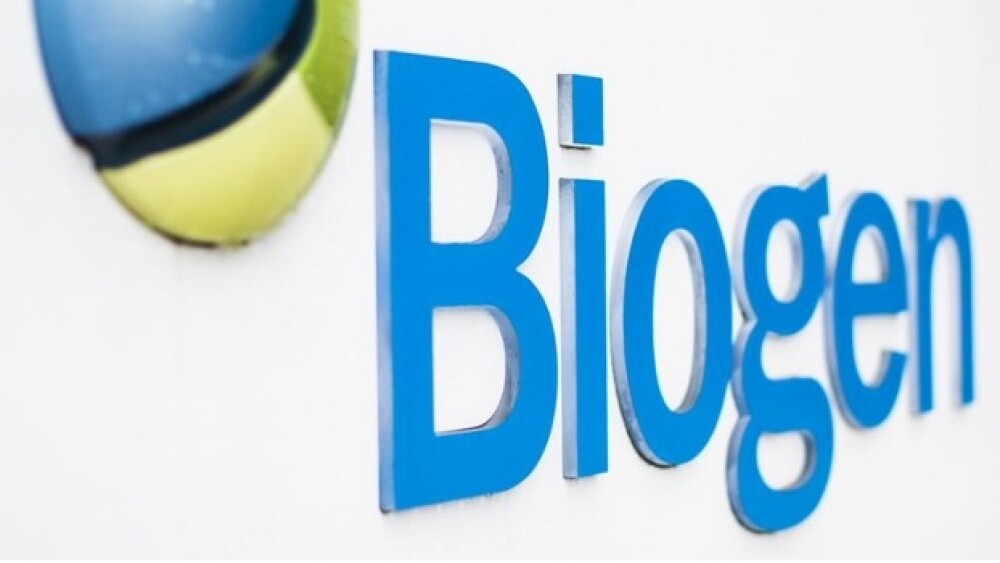Three other drug contenders that work similarly to Biogen’s drug are currently in clinical trials and expecting data relatively soon.
Photo courtesy of Biogen.
The approval of Biogen’s Alzheimer’s drug, now marketed as Aduhelm, has been a continuing controversy across the nation. From outrage over the pricing of the drug – $56,000 a year – to the resignation of three members of the FDA advisory panel that recommended against approval to the broad label approved to the ultimate question of will it slow the disease progression, doctors, insurers and families are scrambling for answers.
With all the negatives, some positives can also come out of the surprising FDA approval. Three other drug contenders that work similarly to Biogen’s drug are currently in clinical trials and expecting data relatively soon.
These trials could give the medical community a better picture of whether Aduhelm slows the lethal, mind-wasting disease.
The approval of Aduhelm last week was based on the fact that it cleared the sticky beta-amyloid protein clumps that form plaques in the brain of an Alzheimer’s patient and disrupts cell function. What’s yet to be determined is whether or not the clearing of these plaques will slow disease progression and improve patients’ lives.
The FDA believes that clearing the amyloid plaque from the brain is likely to benefit patients. With its “accelerated approval” program, the agency requires a follow-up confirmatory trial for Aduhelm to prove just that. Biogen was given nine years to submit this data.
However, many doctors and researchers aren’t convinced that clearing the protein clumps from the brain will be the game changer Alzheimer’s patients desperately need.
“I don’t feel that we have evidence now that there’s a clinical benefit from reducing amyloid,” said Dr. Henry Paulson, a neurologist who leads the University of Michigan’s Alzheimer’s Disease Center.
“If another independent study of a different anti-amyloid therapy shows a clear clinical benefit, it makes me much more comfortable with continued use of Aduhelm,” he said.
The two large clinical trials for Aduhelm were contradictory – one failed, and one showed benefit. A brain swelling side effect was also reported in some.
With over six million Americans suffering today from the devastating disease, getting a new drug approved to treat the underlying cause has been a bit of a unicorn for the past two decades.
Aduhelm and the up-and-coming contenders also aimed at amyloid are all antibody drugs – Eli Lilly’s donanemab, Roche’s gantenerumab, and Eisai and Biogen’s lecanemab. Positive data from these medicines could provide future competition for Aduhelm.
The FDA states that the accelerated approval path may not be available for other Alzheimer’s drugs, but many critics would argue the contrary.
“This is precedent-setting whether the FDA likes it or not,” said Dr. Caleb Alexander, a Johns Hopkins public health professor and one of the remaining members of the FDA advisory panel that reviewed Aduhelm.
“That’s not to suggest that the next drug that lowers amyloid is a slam dunk or even gets approved. It may not.”
While the FDA approved the drug with a broad label that includes all Alzheimer’s patients, the clinical trials had only been done in individuals with early stages of the disease. This leaves doctors and insurers left to decide if it should be restricted to the population studied in the trials or not.
“Instead of a limited pool of eligible patients, you now have every patient and every family with Alzheimer’s thinking maybe they should try this,” said Steve Miller, chief clinical officer for the insurance company Cigna. “The FDA has transferred its responsibility down to the payers, and making payers out to be the bad guy.”
For those on Medicare, the out-of-pocket expense for patients would be in the ballpark of $11,000 a year, with potentially additional costs for the PET scans needed to detect the amyloid clumps and follow-up scans for the tiny brain bleed sometimes caused by it.
“My greatest concern is around people with families with Alzheimer’s disease,” said Joshua D. Grill, an Alzheimer’s researcher at the University of California at Irvine. “Few can afford the financial burden in the first place, let alone the additional costs of Aduhelm.”
For six million Alzheimer’s patients and families, they’re just thankful for even a chance at something that could potentially improve their lives.
Marc Archambault, the first person treated with Aduhelm outside of a clinical trial, said, “Obviously, I am very happy to have this. It’s amazing.”






